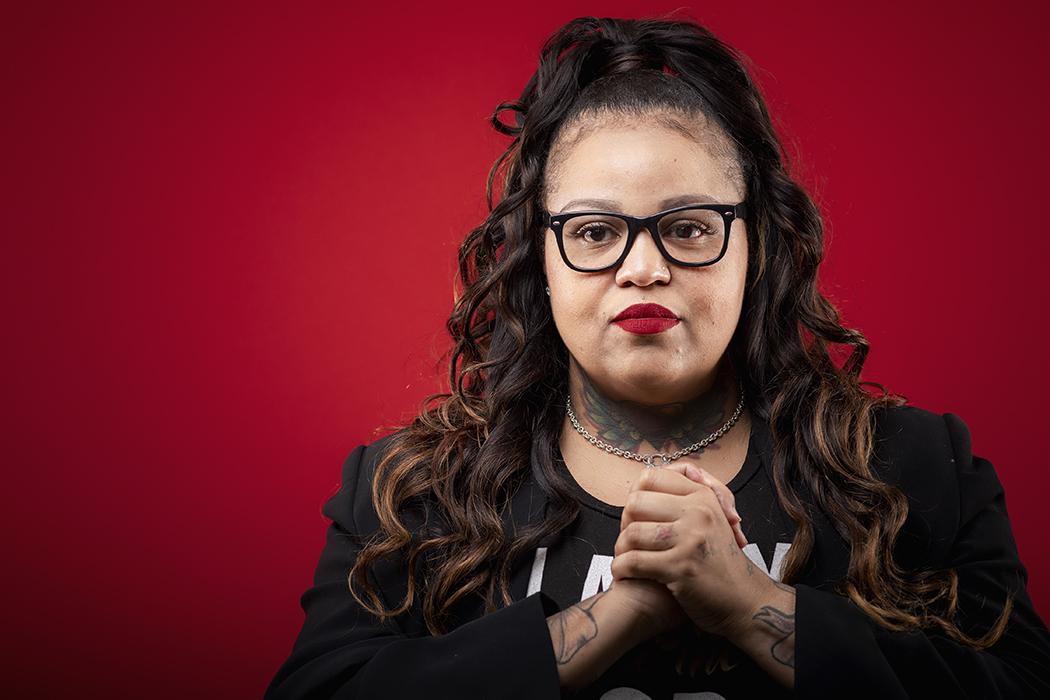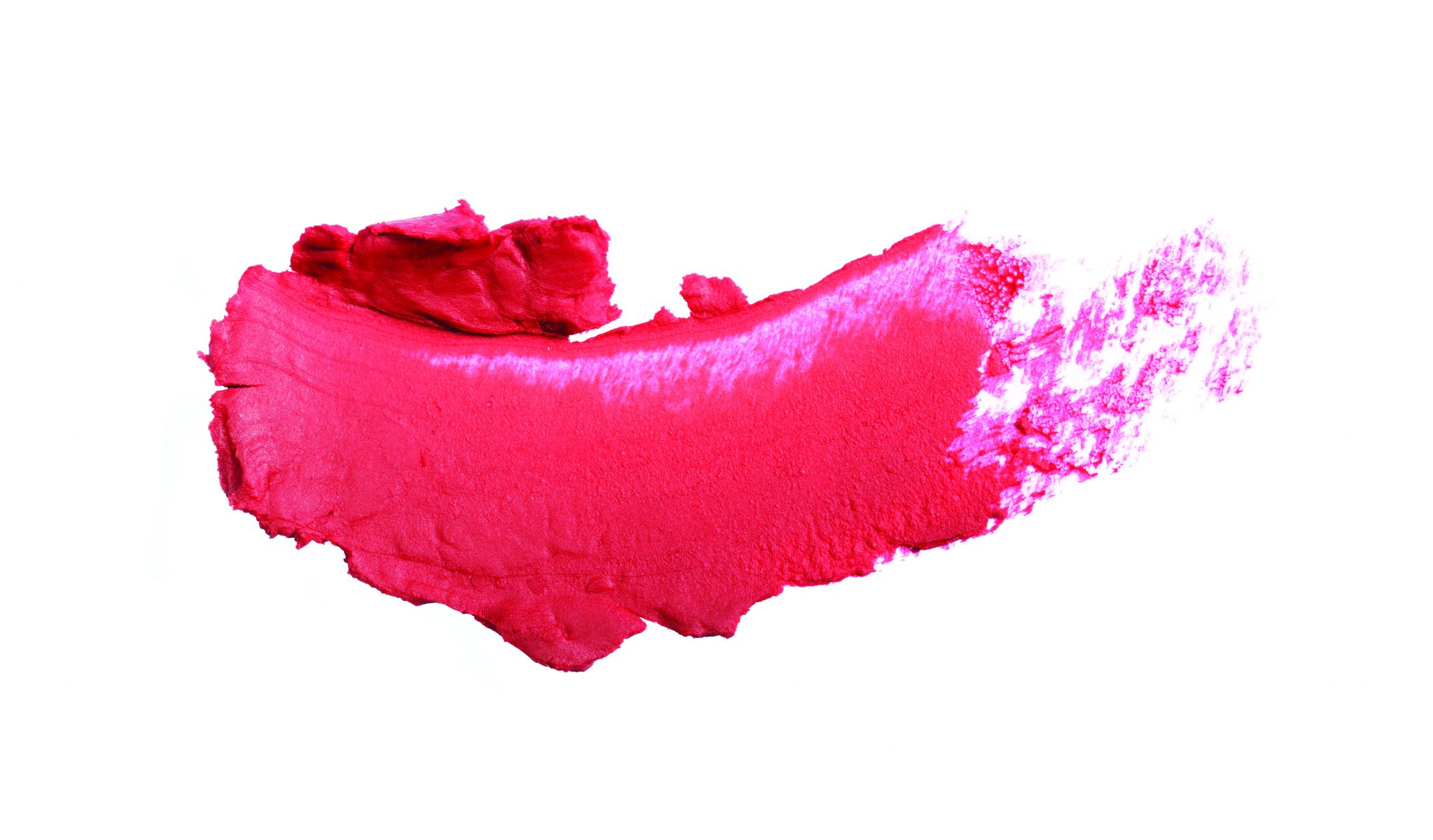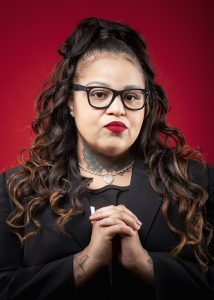
Photography by Danny Fulgencio.
April Wallace knows barbering is more than just a means to look good. It’s also a means to a better life. The Hamilton Park native used the trade, along with her business skills, to restart her life when she was released from prison in 2010 after serving 10 years for drug charges. Now, the businesswoman is looking to expand her beauty trade school empire to help women adjust to life on their own after incarceration or an escape from domestic violence. When she’s not in the barber shop or taking online classes, Wallace volunteers with Exodus Ministries, which helps ex-offenders develop life and money skills and reconnect with their children. She also helps the area’s homeless.
April Wallace

What was your childhood like? My mom’s a nurse and an Army veteran and my dad is a teacher. My dad’s family is from Hamilton Park. They’re all educated, well known. So it was just like I was different. I was the only girl out of four boys. The oldest. I just never connected with anyone; I never have. I’ve always marched to the beat of my own drum. At about 14, I just ran away from home and never came back.
I alienated myself from my family and it wasn’t until I went to prison at 21 that I really found out who I was and realized I’m not like anybody else; I’m totally different. Now I’m comfortable with that. When I go to networking events, people remember me, and that’s good when you’re in the business world. I don’t want to mesh in with everybody else, look like everybody else and be like everybody else.
How did prison affect you? It saved my life. I would not be where I’m at right now had I not been in prison. I’m telling you, I was hell on wheels. Like a little fireball rolling around. I matured in prison because I went in when I was 21 and got out when I was 31. I read. I couldn’t go nowhere, I didn’t have access to anything. It was that structured environment that probably saved me. I didn’t have an epiphany or anything like that, it was just wearing the same thing, eating the same thing, the same room, the same people for 10 long, exact years. And not having the freedom to be able to make decisions for myself. I was like, “I’m never ever, ever going to put myself in this position ever again.”
What was it like once you were released? I was like, “I got to go to hair school,” and that’s all I knew. I didn’t know where I was going to live, what I was going to drive, how it was going to be. When I got out of prison, they gave me $200 and said “good luck.” I didn’t have anybody to help me. It’s hard for a woman, period. But then when you come out of bad situations, you really don’t have a lot.
How did you know you wanted to do hair? I’ve always done hair. My grandmother had a beauty shop in Oak Cliff. It was just something I’ve naturally always done, always. So I had already, literally, had my life mapped out. And yes, it has some curves in there. I’ve been knocked down several times, but, like I said, I cannot give up. I won’t give up. So I just always figure out a way. Even if I fail, I just start over.
Why do you want to open trade schools? The thing that saved my life when I got out of prison was me getting this trade because I couldn’t go anywhere and get a job, not a good paying job. And if I did get a job, I surely wouldn’t be there right now to this day. If convicted felons or women leaving domestic violence situations have a trade, then they can do far more and have more independence once they get out.
Have you faced discrimination? It’s almost like me going to prison for 10 years, that’s part of my story, that’s part of my struggle. But it also makes people judge me or try to misuse me. When I first got out, I would have to go to work in beauty supply shops and they wouldn’t pay me right because they knew I was desperate for a job. I couldn’t get apartments in my name, so I would have to go stay with people, and they felt like because I did hair and made money that I should pay all their bills to just stay there. I’ve had people steal my money. I would have to go get condos that were individually owned and I would tell people up front, “Hey, I’ve been to prison, but this is what I’ve done since I’ve been out.” A man even had me sign a lease one time, gave me the “keys” to the condo, and it was all a scam. He took my whole income tax check. When people know that you need them or that you have a weakness, they will take advantage of you because they feel like you’re a weaker vessel, and you’ve been in trouble before so there’s nothing you can do. I feel like now I’ve had to prove more to get the respect that I deserve. But if I can help somebody else not have to go through what I went through, then I’m OK with that.
How do you help the homeless? Sometimes I’ll just get clothes from my dad and collect clothes from other people and I’ll just go out and post up somewhere where they will be and give them clothes. I try to help the ones that I know have mental illnesses and don’t have the sense to go to the places to get clothes and food. I have to go looking for them. When I go to hotels, I ask the people if I can get extra stuff for the homeless. And the managers usually give me some. So I get bags, Ziploc bags, and I’ll go put the stuff in them. I just try to help the people that nobody even thinks about and have just written off.
What advice would you give your younger self? I would have told myself to obey my parents, go to school and just not be so rebellious.
Would you have listened to that? No. Really, I just don’t have any regrets. That’s crazy. I don’t. I do not regret going to prison. I don’t regret not going to school. I don’t regret not going to prom — that stuff did not interest me. But I do regret hurting my mom and dad so much. I know I put them through so much. That’s the one regret I’ll say. Don’t hurt my parents.






